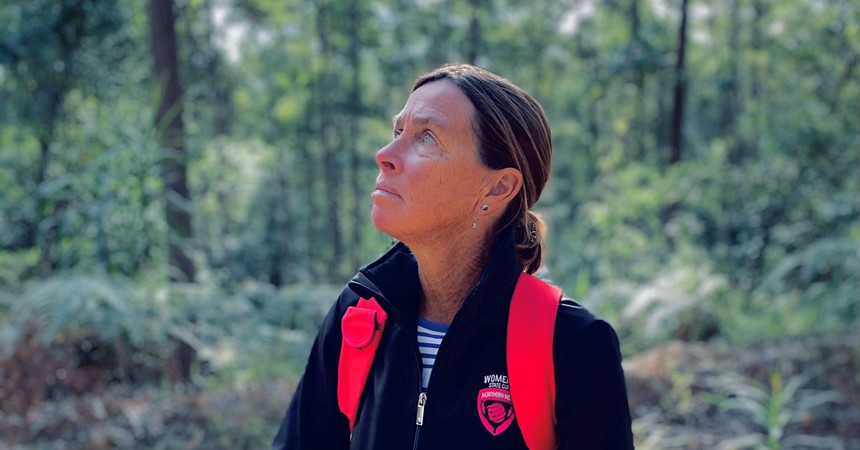The role is based on forming relationships and accompanying people whether in the schools, parishes, or community, on their family faith journey.
Ten years ago, the role was conceived as a pilot project in the Blackbutt region through the collaborative efforts of the Diocese and the Catholic Schools Office.
Today, the role has expanded into the four deaneries and is delivered by four family ministry coordinators: Helene O’Neill (Newcastle), Rose Mahony (Watagans), Loretta Heffernan (Myall) and Lucy Sneesby-Tooth (Upper Hunter) but remains as a family first, parish-based and school supported role.
They say variety is the spice of life, and it is also the essence of being church. There are many ways to do and be church today especially as staff in Pastoral Ministries are promoting a ‘Church without Walls’ approach. How do we include those on the margins? What is our approach towards those who are not a part of the worshipping community? What defines a parish? And the most pertinent question; what is a family? Each member of the church is in a family and of themselves—and a part of the larger church family.
Because of this great diversity in family configurations, one of many considerations for FMCs is to ensure that all diverse groups are included and nurtured. To accomplish this, FMCs adopt approaches that are relevant to their deanery and the parishes and schools. Activities range from supporting sacramental teams, being involved in community garden projects, attending prayer groups, being active in community outreach such as Hunter Homeless Connect and Hello Hunter, and working collaboratively with Pastoral Care Workers in our schools.
The evangelisation and catechesis of whole families enable the FMC to recognise a local need and respond as required. Programs such as parish Conversations about Catholics, ecumenical Friendship groups and engaging with parishioners in Anointing masses and Parish family masses.
FMCs work collaboratively with staff of the Pastoral Ministries Formation and Education foundation to foster Special Religious Education (SRE) in Government schools. They invite parishioners to join the team as catechists and offer training and formation in readiness to deliver the Good News in state schools. FMCs further liaise with Government schools through regular contact and visits to the schools.
Parish sacramental programs provide an opportunity for FMCs to walk with families who might be having difficulty with the program or simply need a formation refresher. We work with parish teams and assist in delivering the program and attending the ceremonies as a witness for the families.
One of the FMCs favourite roles is in the hospitality area. Whether attending the Forster community kitchen or food preparation for CatholicCare, attending school and parish functions, or lending a hand in the school canteen, these actions provide occasions to carry on a conversation with workers who are all part of a family, albeit parish or community.
To grow both relationally and spirituality all four FMCs have undertaken further study to keep pace with changing work landscape. Coordinator Helene is studying the Graduate Certificate in Mission and Culture through ACU; Rose has just graduated from the University of Newcastle and is also undertaking the Diocesan Christian Formation Course; Lucy has just completed her second year of the Clinical Pastoral Education (CPE) course, and Loretta is furthering her learning as a trainer in the much sought-after course in schools, Season for Growth.
The FMC also work closely with the Office of Safeguarding and are trained to deliver to parishes the four-hour Safeguarding package. Conferences such as Alive in the Spirit and the International Peace Convention also add to our skill sets and keep pace with the latest developments in Parish Pastoral Councils, Sacramental programs and family faith requirements.
To further develop our relationships in school we liaise with the Religious Education and Spirituality Department and the Pastoral Care Workers network. The latter is a mutually beneficial arrangement and complement the activities in the interest of developing spirituality in families.
We are also connected to the Integral Ecology Network which provides occasions for involvement in greening projects based on Laudato Si where schools and families are encouraged to further their spiritual nourishment through connection with the earth. Catholic Missions include the FMC in the training for the Socktober, then in turn we support schools in their fundraising efforts.
As 2022 approaches the FMC will join as a volunteer group to spearhead the Diocesan Caritas appeal through the Lenten Project Compassion fundraiser titled ‘For Future Generations’. We will invite both primary and secondary school students to train as Caritas animators and share the message with parishes and schools. The students will be empowered to lead their school in activities not only in Lent but throughout the year spreading the Caritas message of hope and love.
We look forward to further growth in the FMC role and would welcome contact with your parish and school. If you have not experienced the joy that this ministry of presence can bring to those with whom we come into contact please check the Diocesan website for our contact details.
Acts 2:44 ‘All who believed were together and had all things in common.’

